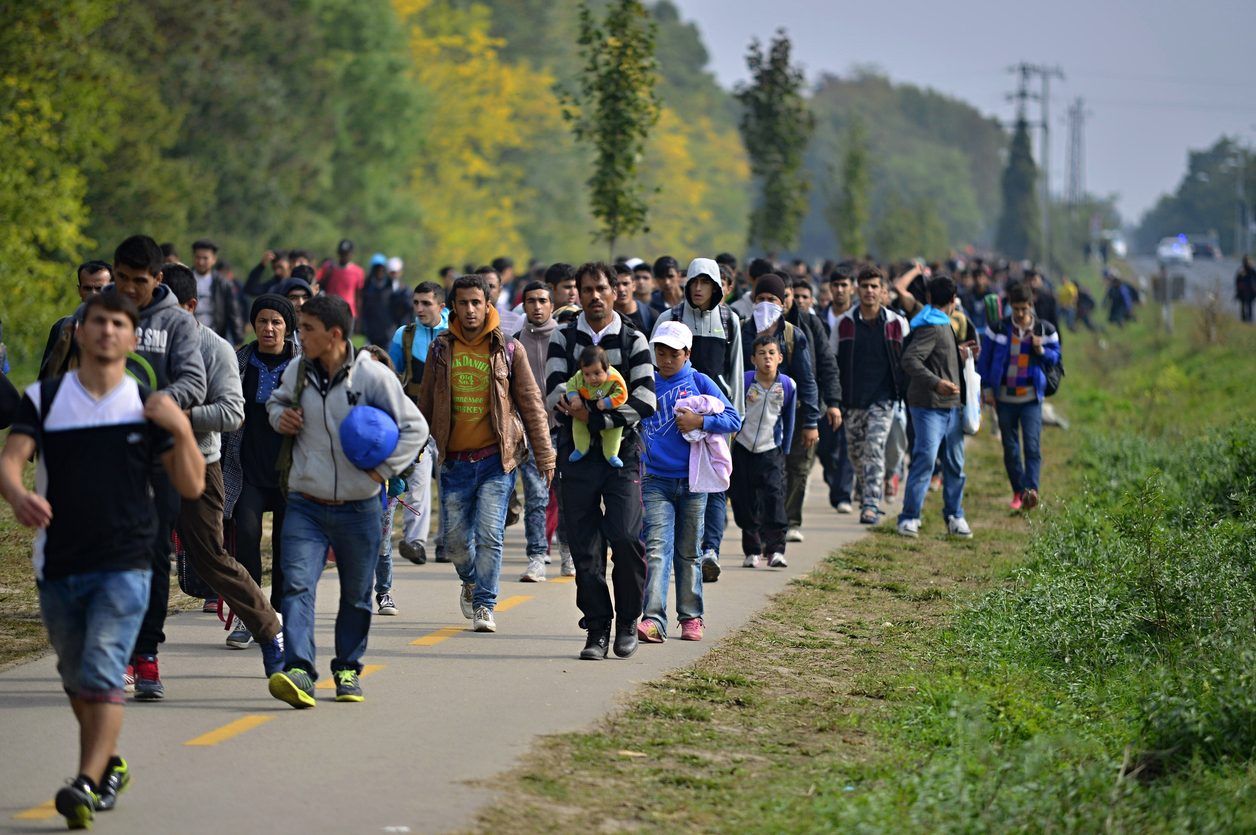The Weekly Round-Up
The Weekly Round-Up

Getty Images
Welcome to The Briefing newsletter by Jason Clarke and Mitchell Dorris. Mitchell is the Faith and Politics writer for SEEK and will be weighing in on the latest issues relating to refugees and immigration as it relates to the intersection of national policy and faith. This week we will look at the migrant caravan making its way up from Honduras to the Southern border of the United States. We take a look at the facts surrounding the current situation as well as the theological implications. Questions surround troops being deployed to the border as the caravan gets closer. The closest groups of migrants is around 800 miles away and is expected to reach the border in about three weeks. While this holds big implications politically, this is an opportunity for the Christian to practice a biblical view of human dignity. The Briefing is a collaboration between Seek the Peace and We Welcome Refugees.
Caravan Story
This is not the first time that a large number of immigrants have grouped together and made their way to the US/Mexico border. Earlier this year around 1,500 people from southern Mexico started the journey to the US. By the time they made it to the border, the number had dwindled down to only a few hundred. Of those who made it to the border, 401 applied for asylum within the United States. 93% passed the first test of the application process which is proving they have a credible fear of returning home. While this does not mean they were given asylum, it is a promising first step. This is higher than the average number of people who pass, which is 76%. It is largely expected that the current caravan is attempting to do the same thing. The difference this time is the caravan from Honduras includes around 7,000 people seeking refuge in either Mexico or the United States.
This number is largely believed to be smaller when the caravan arrives at the U.S. border. The reason for this is some will test their luck in Mexico. Mexican authorities have already begun processing over 2,700 requests for asylum. When the caravan reaches the border, they will be met with organizations offering legal help, others offering medical assistance, and military personnel. Last week around 1,000 troops were dispatched to the border to oversee and aid current border security. This number is expected to rise as the Department of Defense has said 7,000 troops will be at the border.
Human Dignity
Christians thinking through this should, first and foremost, remember the inherent dignity God gives every human. In Genesis 1:26 God says, “Let us make man in our image, after our likeness.” This is known as the imago dei. We are made in the image of God and we have all been given dignity through Him. This applies to everyone, including the migrants making their way to the border. As followers of Christ, we should be the first to speak out against threats on human dignity. As the national debate intensifies around this, Christians would be right to reject any attack on the dehumanization of vulnerable people. After all, as followers of Christ, we too are on the move as we are not yet home, in a spiritual sense.
According to Romans 13, the government has been given the responsibility to protect its citizens and we believe our government should do that, but surely we can help in some way. The United States is one of the most prosperous countries in history and we should be able to take in more refugees fleeing violence than we already do. This year we have seen record lows in regards to refugee intake. The time we live in is one with massive displacement of people from all over the world due to civil war, famine, violence, persecution, etc. The UN said 68.5 million people were displaced at the end of 2017. As Christians, this should trouble us as we think through the dignity every human has. As Dan Darling said in a recent Washington Post article on the migrant caravan, “it is an opportunity for the people of God to live out the gospel by seeing the face of God in the faces of the vulnerable.”